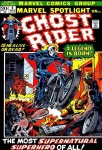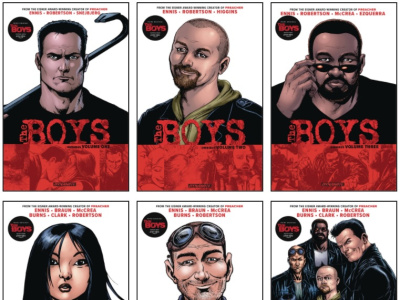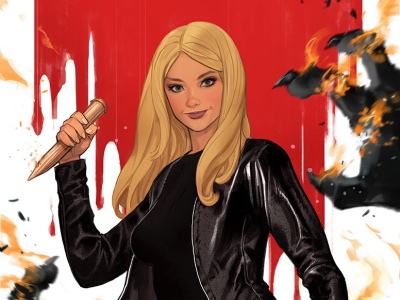 Comic writer Gary Friedrich won his appeal in his case against Marvel over ownership of Ghost Rider; the case has been sent back to be tried in a lower court. Friedrich appealed after a federal district court issued a summary judgment that Marvel owned Ghost Rider and did not have to pay Friedrich a share of revenues from movies and merchandise based on his creation (see "Friedrich Appeals Ghost Rider Decision").
Comic writer Gary Friedrich won his appeal in his case against Marvel over ownership of Ghost Rider; the case has been sent back to be tried in a lower court. Friedrich appealed after a federal district court issued a summary judgment that Marvel owned Ghost Rider and did not have to pay Friedrich a share of revenues from movies and merchandise based on his creation (see "Friedrich Appeals Ghost Rider Decision"). Now, in a ruling by the federal Court of Appeals for the 2nd Circuit, the summary judgment by the lower court has been overturned and the case has been sent back to the lower court to go to trial. "We conclude that the district court erred in granting summary judgment because the Agreement is ambiguous and there are genuine disputes of material fact regarding the parties' intent to assign renewal rights in that Agreement, the timeliness of Friedrich's ownership claim, and the authorship of the work," the ruling said.
The court did rule in Marvel’s favor on two issues: the dismissal of state law claims by the district court, which the appeals court upheld; and the district court’s decision to deny Friedrich’s cross-motion for summary judgment on the issue of authorship, which the appeals court also upheld.
On the core issue, the overturning of the summary judgment that had been issued against Friedrich, the appeals court listed its reasons.
"First, the critical sentence defining the 'Work' covered by the Agreement is ungrammatical and awkwardly phrased," the ruling said in a victory for clear drafting. "This opaque cluster of clauses is simply not clear and parsing through its dense provisions does little to elucidate its meaning."
"Second, the language is ambiguous as to whether it covered a work published six years earlier," the ruling said. The work-for-hire agreement was signed after the origin of Ghost Rider, and the court said it wasn’t clear that the agreement was supposed to look backward.
"Third, the language is ambiguous as to whether it conveys renewal rights," the ruling said.
The court also looked at extrinsic factors (what was going on outside of the agreement itself), and found that those could be construed to support Friedrich’s positions as well.
So the case goes on, with a trial on the facts to come. Of course, the case can be settled at any time, but so far both Friedrich and Marvel have seemed to be ready for a long battle.







